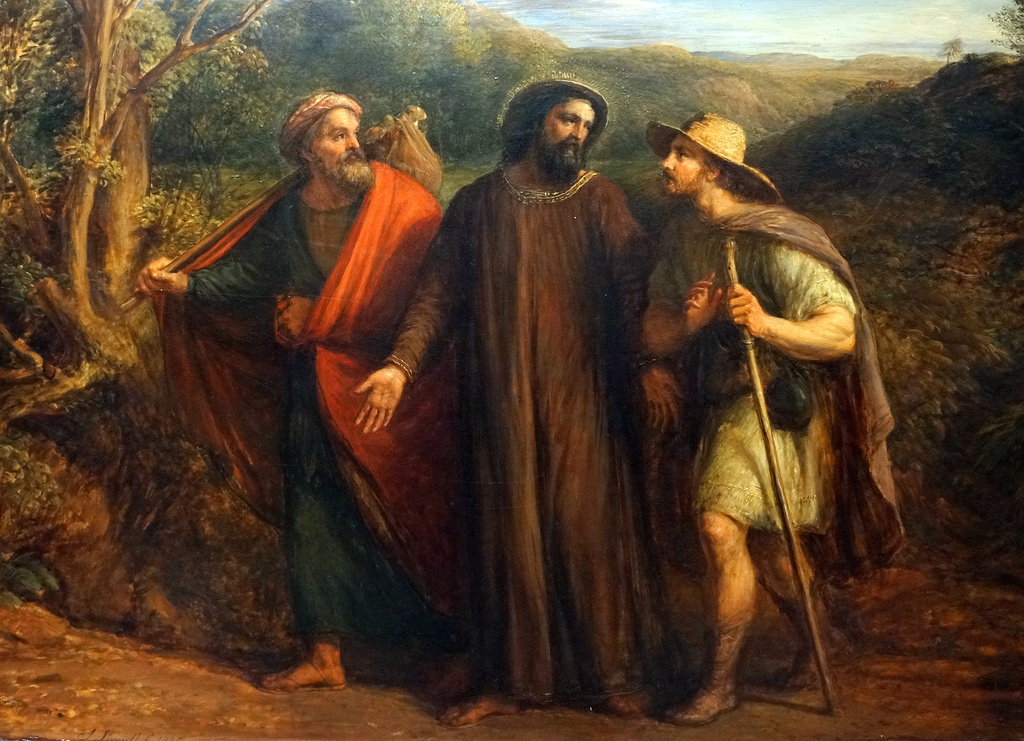On the Road to Emmaus

Of all the resurrection appearances in the Gospels, I think our Lord’s appearance to the two disciples on the road to Emmaus in Luke 24 is my favorite. This encounter was yet on the Day of Resurrection.
All we know for sure is that one of the two disciples was named Cleopas (v 18), and if this is one and the same with the mention of Clopas in John 19:25, then this is the uncle of Jesus. It would also mean that the other disciple was likely Simeon, Cleopas’s son. This is the same Simeon who would go on to be the second leader of the Jerusalem Church. The point is, both would have been very familiar with Jesus.
So it is amazing that neither recognizes the risen Jesus, who suddenly comes up and walks alongside them as they journey back home after the week’s celebration of the Passover in Jerusalem. And we are told by Luke “that their eyes were kept from recognizing Him” (v 16). When they finally do recognize Him much later we are told that “their eyes were opened, and they recognized Him” (v 31)! This speaks volumes as to how faith itself is a gift given us by God. Truly salvation is His work!
And how they came to recognize the risen Christ is more than worth noting! First Jesus, unbeknownst to them, catechizes them in how all the OT pointed to the necessity of Jesus death and resurrection. But it is only later, as the two invited Jesus into their home toward evening and they sat at table. It was when Jesus took bread and blessed and broke it and gave it to them that their eyes were opened! They recognize Him. And then He vanishes.
They then reflected that their hearts had burned within them as Jesus taught from the Scriptures. Imagine that! Word and Meal, in that order, for encountering our Risen Lord, even after He vanishes for a time from our sight.
Since You Asked…
What is the purpose of the “Silence for reflection and self-examination” in the Brief Order For Confession and Forgiveness?
“The silence for self-examination and reflection should be an extended silence to enable personal application of the general phrases of the prayer that follows. Silence of one or two minutes is not too long” (Manual on the Liturgy – LBW). This is a helpful time to reflect back on our lives over the past week and ask ourselves whether we have been disobedient or unfaithful, bad-tempered or dishonest, or whether we have hurt anyone by word or deed. By allowing for this period of reflection we are able to personalize what would otherwise remain quite general.